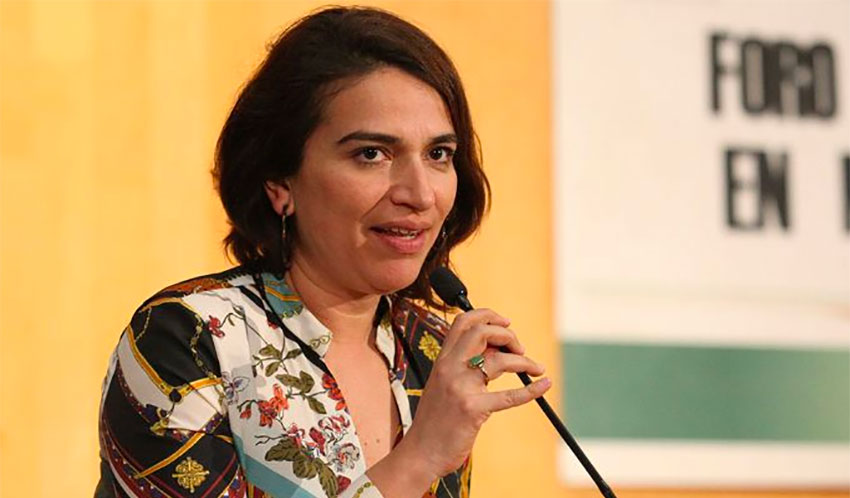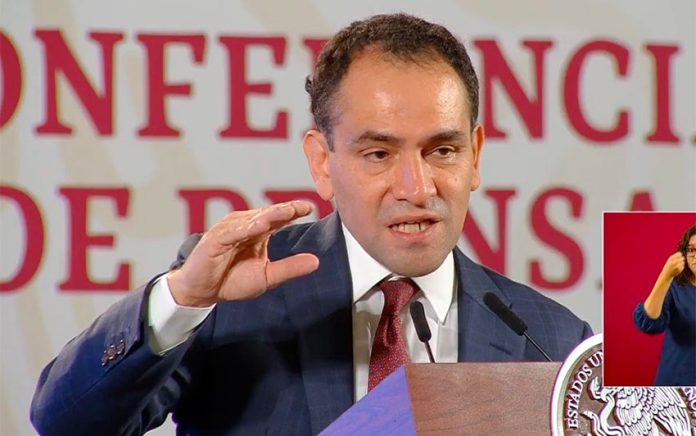The Mexican government promised fiscal rectitude and austerity in a budget for 2021, but analysts immediately criticized the plan for overly-optimistic growth forecasts likely to pile pressure on a country struggling with one of the world’s biggest Covid-19 crises.
The 2021 finance package, submitted to the lower house of Congress on Tuesday, forecast the economy would shrink 8% this year compared with 2019 and bounce back to 4.6% growth next year versus 2020, but the estimates were considerably out of step with the mean forecast of 35 economists in the central bank’s latest monthly survey, which pointed to a median 9.9% fall in 2020 and meager 2021 growth of 2.95%.
The Bank of México has itself outlined a worst-case contraction of a 12.8% this year, and Mariana Campos, budget specialist at México Evalúa, a think tank, said it was “sinful that with the current level of [Covid-19] uncertainty, the government is not budgeting different scenarios.”
Arturo Herrera, the finance minister, insisted the targets were responsible and not contingent upon a Covid-19 vaccine being available that could allow the economy to resume normal activity faster.
Nevertheless, oil production and export price assumptions were greeted with raised eyebrows in financial markets. Pemex, the state oil company, will boost production to 1.85 million barrels per day in 2021, the budget forecast, a far cry from July production, with private sector partners, of 1.59 million — the lowest level since 1979.

While Mexican oil for export was trading at US $35.50 per barrel on Tuesday, the budget penciled what it said was the “prudent” price of $42.10.
“It’s unnecessarily optimistic,” said Alonso Cervera at Credit Suisse. “The finance ministry will now be playing defence, having to answer the questions of analysts and rating agencies,” he said.
The Mexican government has scant room for maneuver. After state oil company Pemex was slashed to junk status in April by a second rating agency, the country is widely expected to face sovereign downgrades that could strip it of its coveted investment grade status, perhaps as early as 2021.
President López Obrador has adamantly refused to take on debt to fund Covid-19 stimulus measures, saying developed countries that had done so “took the easy way out.” Herrera told a news conference such a move would have cost “money we don’t have.”
The president has also ruled out tax hikes or new taxes. Herrera said it was “not the moment” for tax changes although with revenues under pressure as the pandemic drags on, analysts widely believe the government should plan a comprehensive tax reform sooner rather than later.
López Obrador has insisted a combination of austerity overall with targeted welfare spending and pet rail, airport and other infrastructure projects — which received hefty budget increases — are already delivering results.
The budget boosts 2021 health spending by 9% and infrastructure spending by 5.5%.
Cervera of Credit Suisse said it was “hard to applaud” a 0.2% primary surplus goal this year, and a zero percent primary balance in 2021, “when we see all the destruction of economic activity and suffering.”
Mexico has confirmed 642,860 coronavirus cases and 68,484 deaths but officials and private studies suggest the actual numbers could be three times higher.
The country was already in recession before the pandemic struck. Its gross domestic product shrank almost 19% in the second quarter compared with the same quarter in 2019, and Herrera has admitted Latin America’s second-biggest economy is staring at the worst downturn in a century with little spare cash.
BBVA analysts said the budget “maintains fiscal discipline,” including a debt-to-GDP ratio of 53.7% compared with 54.7% in 2020, but “relative optimism” over tax receipts put debt goals at risk, they said.
© 2020 The Financial Times Ltd. All rights reserved. Please do not copy and paste FT articles and redistribute by email or post to the web.
